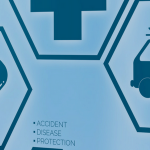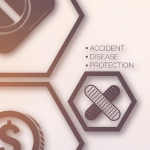by Scott Moore, J.D. & Kathy Lester, J.D. M.P.H.
Today, the Occupational Health and Safety Administration (OSHA) and Centers for Medicare & Medicaid Services (CMS), released the highly anticipated mandatory COVID-19 vaccination regulations for employers with 100 or more employees and new COVID-19 vaccination requirements in the Conditions of Participation (COPs)/Conditions for Coverage (CfCs).
OSHA COVID-19 Vaccination Regulations
A summary of the new rules can be found on the OSHA website. Under this latest rule, OSHA stated that any employer who is subject to the Healthcare ETS released in June, 2021 is not subject to the Vaccination and Testing ETS. This would include many EMS employers. However, healthcare employers should refer to the Healthcare ETS to ensure that they are in compliance with those requirements.
It is important for EMS employers to note, where they have “healthcare support services”, as defined under §1910.502(vi) of the Healthcare ETS, that are not subject to the Healthcare ETS because these employees are segregated in non-healthcare settings (stand-alone administrative facilities), those employees will be subject to the requirements Vaccination and Testing ETS.
There was nothing in the latest ETS that prevents employers from instituting a mandatory vaccination requirement for its employees. Many EMS employers are already required to mandate vaccination under a state or local law. These employers may continue to require vaccinations for its employees.
CMS COVID-19 Health Staff Vaccination Rule
CMS also released an Interim Final Rule with Comment (IFC) governing health care staff vaccination requirements, as well as a Press Release, Fact Sheet, and Frequently Asked Questions. While the IFC regulations do not directly apply to ground ambulance suppliers, the definition of staff that includes individuals contracted with or that have other arrangements with facilities directly regulated will be indirectly subject to the rules through their arrangements with the facilities. For example, an EMS service that has no contract or arrangement with any of the directly covered health care facilities listed below should not be subject to the CMS requirements. However, a ground ambulance service that has a contract with a nursing home to provide interfacility transports, for example, would be indirectly affected because of the requirement on the nursing home to ensure that contractors meet the vaccine requirements. Additionally, there the regulations do not prevented a health care facility from creating their own requirements on vendors that do not have an existing contract with the facility.
The ICF amends the existing Conditions or Participation / Conditions for Coverage for the following facilities:
- Ambulatory Surgery Centers;
- Community Mental Health Centers;
- Comprehensive Outpatient Rehabilitation Facilities;
- Critical Access Hospitals;
- End-Stage Renal Disease Facilities;
- Home Health Agencies;
- Home Infusion Therapy Suppliers;
- Hospices;
- Hospitals;
- Intermediate Care Facilities for Individuals with Intellectual Disabilities, Clinics, Rehabilitation Agencies, and Public Health Agencies as Providers of Outpatient Physical Therapy and Speech-Language Pathology Services;
- Psychiatric Residential Treatment Facilities (PRTFs);
- Programs for All-Inclusive Care for the Elderly Organizations (PACE);
- Rural Health Clinics/Federally Qualified Health Centers; and
- Long Term Care facilities.
The IFC requires facilities to develop and implement policies and procedures to ensure that all staff are fully vaccinated for COVID-19. Exclusions from the requirement are permitted for staff (or contactors) who have pending requests for, or who have been granted, exceptions to the vaccine requirements or those staff for whom COVID-19 vaccinations must be temporarily delayed, as recommended by the CDC, due to clinical precautions and considerations.
Staff is defined to include employees, as well as licensed practitioners, students, trainees, volunteers, and “[i]ndividuals who provide care, treatment, or other services for the facility and/or its patients, under contract or by other arrangement.”
The IFC excludes (1) staff that exclusively provide telehealth/telemedicine services outside of the facility setting and that do not have direct contact with patients and (2) staff that provide support services exclusively outside of the facility setting and that do not have direct contact with patients.
The IFC defines an individual as fully vaccinated when 2 weeks or more has passed since the staff completed a primary vaccination series for COVID-19. That can be either the administration of a single-dose vaccine or the administration of all required doses of a multi-dose vaccine. It does not include booster shots.
Facilities directly regulated by the COPs/CfCs will have to have policies and procedures to implement the requirement. Among these requirements is a process for ensuring the implementation of additional precautions, intended to mitigate transmission and spread of COVD-19, for all staff (and contractors) who are not fully vaccinated. There are also contingency planning requirements and documentation and tracking requirements.
The IFC provides facilities 30 days to make sure that staff have received at least the first dose of a primary series or a single dose of COVID-19 vaccine prior the staff providing any care, treatment, or other services for the facility and/or its patients. Within 60 days, the facility must ensure that staff have completed the primary vaccination services (except for those who have been granted an exemption or exclusion).
CMS will enforce the regulations through the existing onsite compliance review process with state survey agencies. Accreditation organizations will also be required to update their survey processes. If a facility is not in compliance, the existing enforcement remedies related to the COPs/CfCs, which can include termination from the Medicare program, will apply.
The rule preempts state law under Article VI § 2 of the U.S. Constitution.
The rule takes effect November 5, but stakeholders have 60 days to provide comments with comments due by January 4, 2022.












